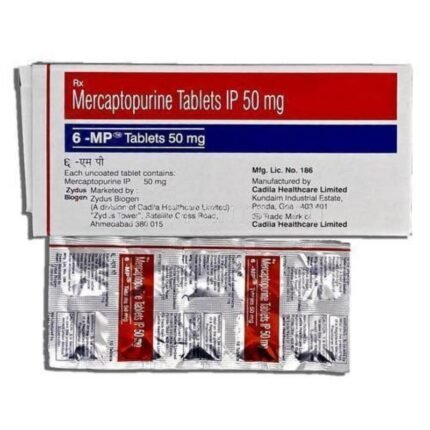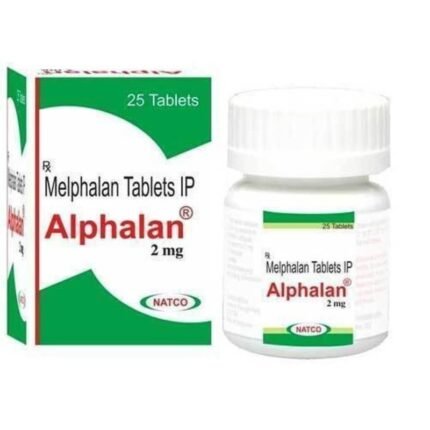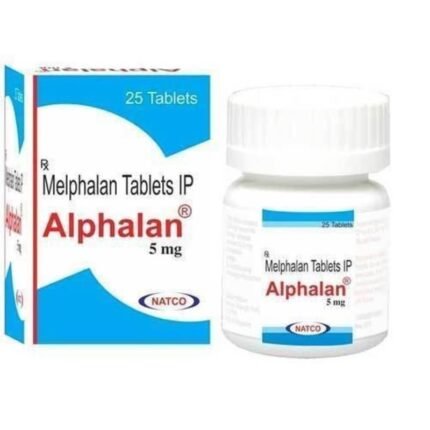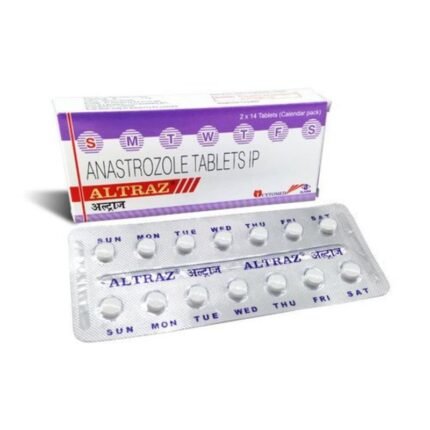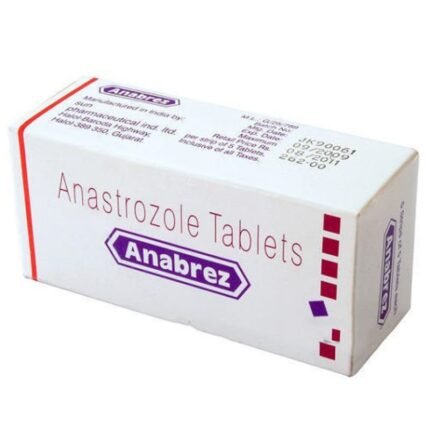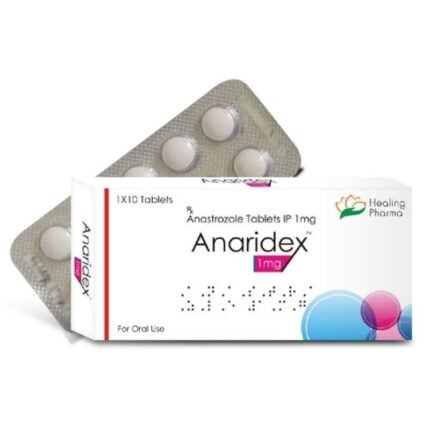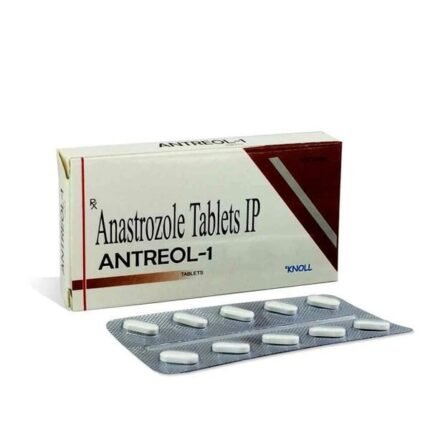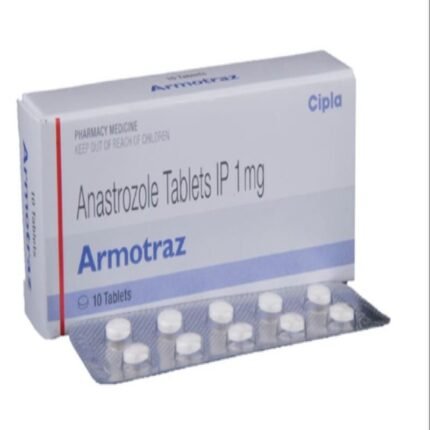Life-Saving Drugs: Critical Medications That Save Lives Every Day
Life-saving drugs are essential medicines used in emergency situations or chronic conditions where immediate or ongoing treatment is necessary to prevent death or serious health deterioration. These medications are recognized by the World Health Organization (WHO) and health agencies worldwide as vital components of modern healthcare.
From managing heart attacks to preventing infections and supporting organ function, life-saving drugs are the cornerstone of survival in critical situations.
6-MP 50 Mg Tablets (Mercaptopurine)
Price range: $10.00 through $90.00Acabrunat 100 Mg Capsules (Acalabrutinib)
Price range: $250.00 through $675.00Alphalan 2 Mg Tablets (Melphalan)
Price range: $95.00 through $333.00Alphalan 5 Mg Tablets (Melphalan)
Price range: $300.00 through $1,070.00Altraz 1 Mg Tablets (Anastrozole)
Price range: $45.00 through $125.00Anabrez 1 Mg Tablets (Anastrozole)
Price range: $100.00 through $530.00Anaridex 1 Mg Tablets (Anastrozole)
Price range: $56.00 through $256.00Antreol 1 Mg Tablets (Anastrozole)
Price range: $80.00 through $350.00Armotraz 1 Mg Tablets (Anastrozole)
Price range: $100.00 through $430.00🏥 What Are Life-Saving Drugs?
Life-saving drugs are medications that are:
-
Vital in emergencies
-
Used to treat life-threatening diseases
-
Required for managing chronic conditions
-
Recommended by global health authorities (e.g., WHO's Essential Medicines List)
They are used in hospitals, ICUs, ambulances, and even for at-home chronic care, depending on the condition.
🩺 Common Life-Threatening Conditions Treated
-
Cardiac Arrest / Heart Attack
-
Stroke
-
Cancer
-
Severe Infections (Sepsis, Pneumonia)
-
HIV/AIDS
-
Organ failure (Kidney, Liver)
-
Respiratory failure (Asthma, COPD)
-
Diabetes Complications (DKA, hypoglycemia)
-
Severe allergic reactions (Anaphylaxis)
💊 Examples of Life-Saving Drugs
1. Cardiovascular Emergencies
-
Aspirin – Prevents blood clotting during heart attacks
-
Nitroglycerin – Relieves chest pain
-
Atorvastatin / Rosuvastatin – Reduces cholesterol and risk of stroke
-
Clopidogrel / Ticagrelor – Prevents clot formation
-
Epinephrine (Adrenaline) – For cardiac arrest or anaphylaxis
2. Respiratory Support
-
Salbutamol / Albuterol – Rapid bronchodilator for asthma attacks
-
Ipratropium – Helps open airways in COPD
-
Oxygen therapy – Life-critical in respiratory failure
-
Steroids (Prednisolone, Dexamethasone) – Reduce airway inflammation
3. Infections & Sepsis
-
Antibiotics (Ceftriaxone, Meropenem, Vancomycin) – Treat bacterial sepsis
-
Antivirals (Oseltamivir, Remdesivir, ARVs) – For viral infections like flu, HIV, COVID-19
-
Antifungals (Fluconazole, Amphotericin B) – Treat life-threatening fungal infections
4. Cancer Treatments
-
Chemotherapeutic Agents (Cisplatin, Doxorubicin) – Kill cancer cells
-
Targeted Therapy (Imatinib, Trastuzumab) – Precision drugs for specific cancers
-
Supportive drugs – Anti-nausea meds, growth factors, and pain relievers
5. Diabetes Emergencies
-
Insulin – For Type 1 diabetes and DKA
-
Glucagon Injection – For severe hypoglycemia
-
Metformin / Empagliflozin – For Type 2 diabetes management
6. Neurological & Psychiatric Care
-
Diazepam / Lorazepam – For seizures and status epilepticus
-
Levodopa / Carbidopa – For Parkinson’s disease
-
Haloperidol / Risperidone – For acute psychosis or schizophrenia
7. Other Essential Medications
-
Epinephrine Auto-Injector (EpiPen) – For anaphylaxis
-
Naloxone – Opioid overdose reversal
-
Hydrocortisone / Methylprednisolone – Shock, adrenal insufficiency
-
Tranexamic Acid – Prevents excessive bleeding
✅ Importance of Timely Access to Life-Saving Drugs
-
Reduces mortality rates in emergencies
-
Prevents long-term complications
-
Improves recovery outcomes
-
Empowers chronic patients to live normal lives
-
Supports critical care infrastructure in hospitals and clinics
⚠️ Challenges & Precautions
-
Some life-saving drugs require strict dosing and monitoring
-
May cause serious side effects if misused (e.g., steroids, chemotherapy)
-
Access issues in low-resource settings
-
Proper storage (e.g., insulin, adrenaline) is vital for effectiveness
-
Always consult a healthcare provider before using any emergency medication
Frequently Asked Questions (FAQs)
Are these drugs only for hospital use?
Some are hospital-specific (like chemotherapy), but many (like insulin or asthma inhalers) are used at home with medical supervision.
Do I need a prescription?
Yes. Most life-saving drugs are prescription-only due to their potent effects and specific indications.
Can I store emergency drugs at home?
Yes, but only as advised by a doctor (e.g., EpiPen, asthma inhalers, insulin). Store them in a cool, dry place.
Are these safe for all ages?
Doses vary by age and condition. Always follow pediatric or geriatric guidelines as directed.
📝 Conclusion
Life-saving drugs play a crucial role in medical emergencies and chronic disease management. Having timely access to these powerful treatments can make the difference between life and death. Whether you're supporting a loved one with a serious illness or managing a personal health condition, it's essential to be informed and prepared.
Explore our reliable range of life-saving medicines and ensure you're never without the help you may need in critical moments.


